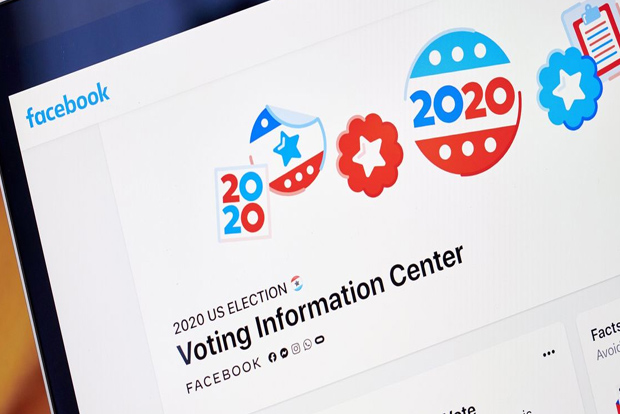Begin typing your search...
FB, Twitter did better by raising the bar on Election Day
That gust of wind you felt coming from Silicon Valley on Wednesday morning was the social media industry’s tentative sigh of relief.

Chennai
For the last four years, executives at Facebook, Twitter, YouTube and other social media companies have been obsessed with a single, overarching goal: to avoid being blamed for wrecking the 2020 US election, as they were in 2016, when Russian trolls and disinformation peddlers ran roughshod over their defenses. So they wrote new rules. They built new products and hired new people. They conducted elaborate tabletop drills to plan for every possible election outcome. And on Election Day, they charged huge, around-the-clock teams with batting down hoaxes, false claims.
So far, it appears those efforts have averted the worst. Despite the frantic (and utterly predictable) attempts from Trump and his allies to undermine the legitimacy of the vote in the states where he is losing, there have been no major foreign interference campaigns unearthed this week, and Election Day itself was relatively quiet. Fake accounts and potentially dangerous groups have been taken down quickly, and Facebook and Twitter have been unusually proactive about slapping labels and warnings in front of premature claims of victory. (YouTube was a different story, evidenced by its tepid response to a video that falsely claimed Trump had won the election.)
All of this raises the critical question of what, exactly, will happen once the election is over and the spotlight has swivelled away from Silicon Valley. Will the warning labels and circuit-breakers be retired? Will the troublesome algorithms get turned back on? Do we just revert to social media as normal? Camille François, the chief innovation officer of Graphika, a firm that investigates disinformation on social media, said it was too early to say whether these companies’ precautions had worked as intended. But she conceded that this level of hyper-vigilance might not last. “These platforms are used for really important conversations every day,” Pariser said. “If you do this for US elections, why not other countries’ elections? Why not climate change? Why not acts of violence?” These are the right questions to ask. The social media companies may have gotten through election night without a disaster. But as with the election itself, the real fights are still ahead.
— NYT©2020
Visit news.dtnext.in to explore our interactive epaper!
Download the DT Next app for more exciting features!
Click here for iOS
Click here for Android
Next Story



